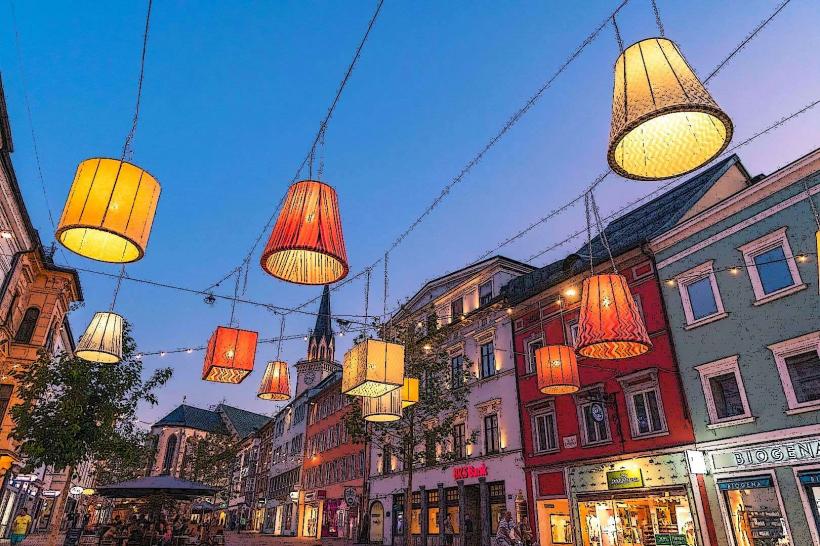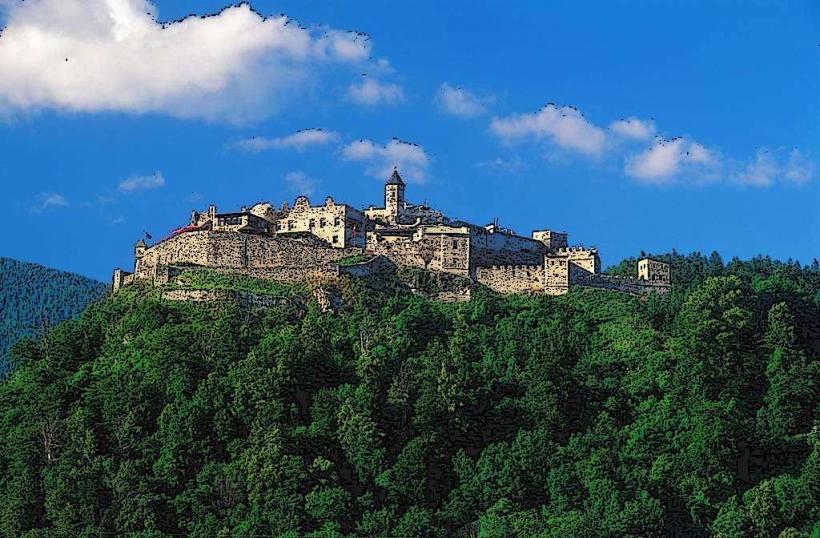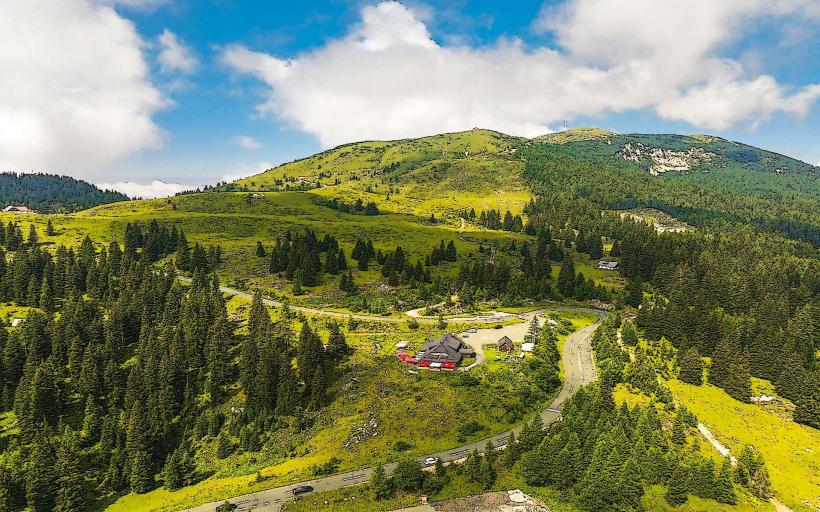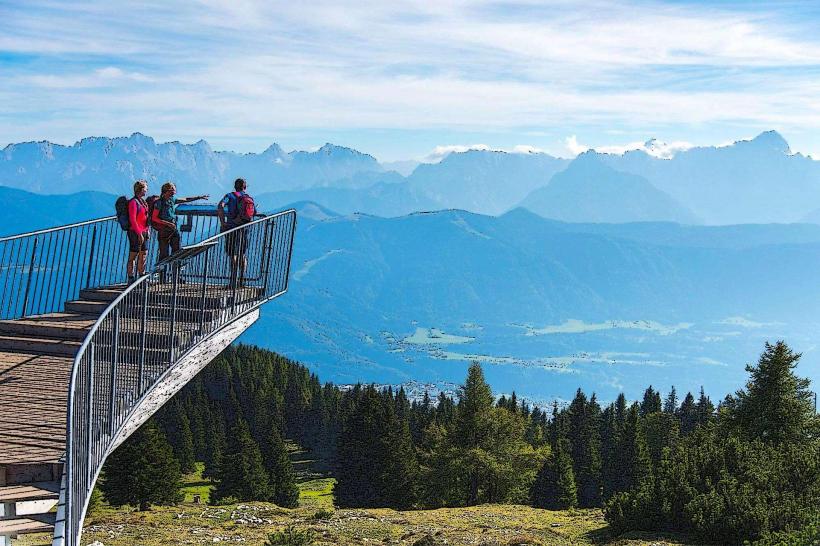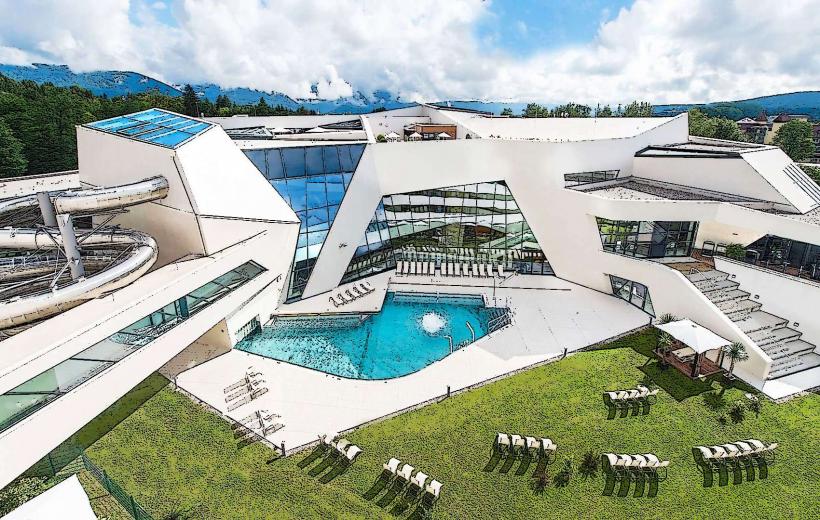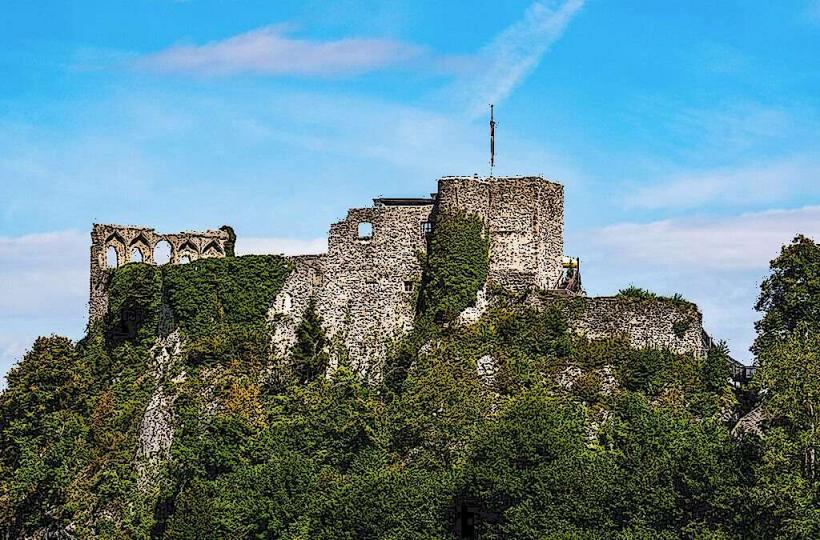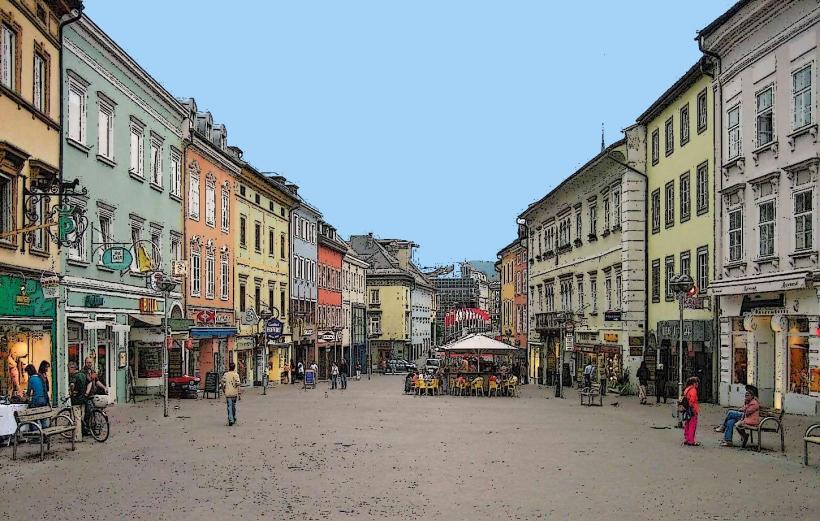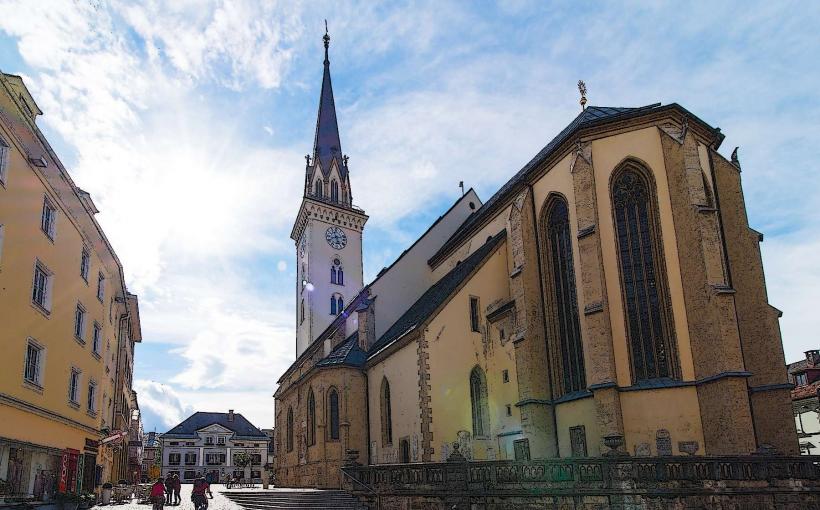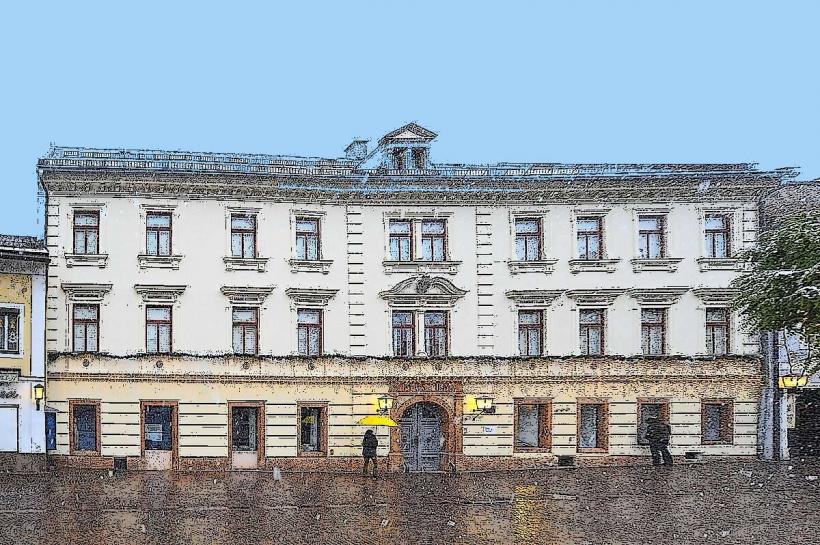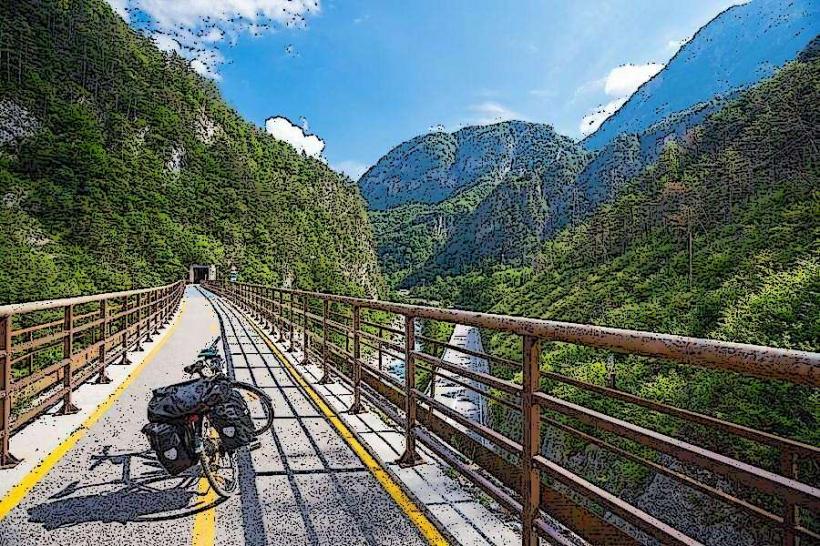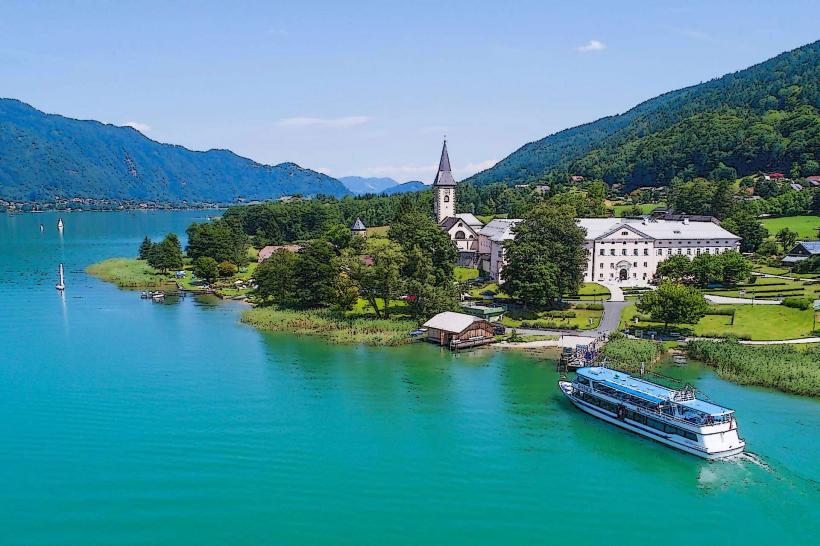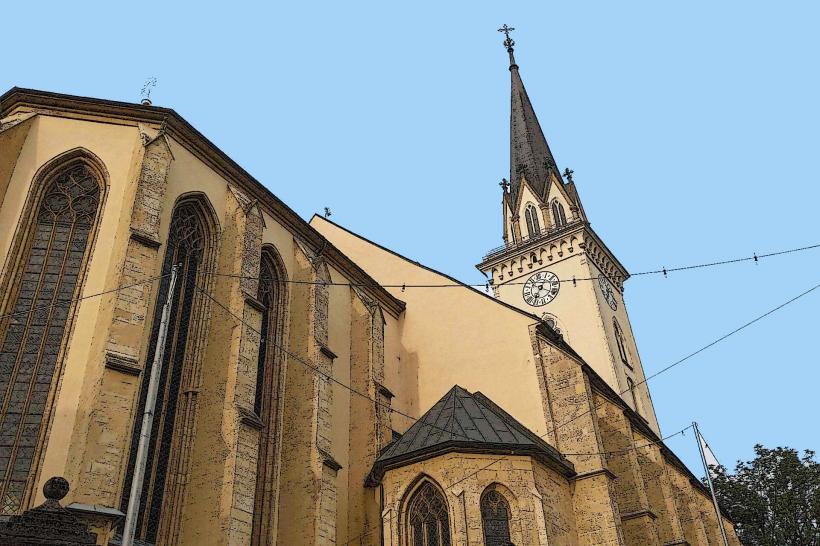Information
Landmark: Villach's City TowerCity: Villach
Country: Austria
Continent: Europe
Villach's City Tower, Villach, Austria, Europe
Villach’s City Tower (German: Stadtpfarrturm Villach) is one of the most iconic landmarks in Villach, a town in the Carinthia region of Austria. This historic tower stands as a symbol of Villach’s rich cultural heritage and offers a glimpse into the town's medieval past. It is part of the St. Jakob's Church complex, which dates back to the 14th century, and the tower has played a central role in the town’s architecture and history.
Overview of Villach’s City Tower
1. Historical Background
The City Tower was originally built as a bell tower for the nearby St. Jakob’s Church. The church itself is one of the oldest in Villach, with roots dating back to the 12th century, although the current structure was built in the 14th century. The tower was constructed in 1440 and has since become one of the defining features of the town's skyline.
Architectural Style: The City Tower is designed in a Gothic style, characteristic of many medieval buildings in Austria. It features a square structure with tall, narrow windows and a steep, pointed roof.
Height: The tower reaches a height of 56 meters (183 feet) and is visible from various parts of the town. Its height and distinctiveness make it one of Villach's most recognizable buildings.
2. Architectural Features
Structure: The tower is made of stone and is adorned with several decorative elements that reflect its medieval origins. The building is fairly simple, in keeping with the Gothic tradition, but it remains striking due to its towering presence in the town center.
Clock and Bells: The tower features an ancient clock, and its bell is still used to mark the hours. The bells are an important part of Villach’s cultural identity, historically used to call townspeople to worship, announce the time, and mark special events.
Access and Views: Visitors can climb to the top of the tower, which offers panoramic views of Villach’s Old Town and the surrounding areas. From the tower, you can see the Carinthian Alps, Lake Faak, and even parts of the nearby Gailtal Valley. The views make the climb to the top a rewarding experience for tourists and locals alike.
3. Cultural Significance
The City Tower is an important cultural and historical symbol for Villach, representing the town’s medieval history and its development over the centuries. The tower’s placement within the complex of St. Jakob’s Church also signifies the importance of religion in the history of Villach.
Landmark of Villach: The tower is a symbol of the town’s long history and is often featured in photographs, postcards, and other promotional materials for Villach. It is one of the most photographed sites in the town, especially during festivals and events.
Civic Role: Historically, the tower also served as a watchtower, providing a strategic vantage point over the surrounding area. The tower’s elevated position allowed it to be a lookout for invaders or approaching storms.
4. Visiting Villach’s City Tower
The City Tower is open to visitors, and climbing to the top is a popular activity. It provides a unique opportunity to see Villach from above and gain a sense of the town’s layout, both historically and geographically. The tower is part of a larger complex that includes the St. Jakob’s Church, which is also open for visitors and houses several notable artworks.
Visitor Experience: While the climb to the top may be a bit strenuous due to the narrow, winding staircase, the views from the top are a rewarding experience for those who make the journey. On a clear day, the panoramic views can stretch as far as the surrounding mountain ranges and lakes.
Opening Hours and Fees: The opening hours of the City Tower may vary depending on the season or special events in Villach. It is usually open to visitors during the summer months and often hosts events or exhibitions. There may be a small entrance fee for those wishing to climb the tower.
5. Nearby Attractions
The City Tower is located in the heart of Villach's Old Town, making it easy to explore other nearby attractions:
St. Jakob’s Church: The church itself is an impressive example of medieval architecture with beautiful stained-glass windows, an altar, and other religious artifacts. It is a must-see for visitors interested in the town's religious history.
Villach Old Town: The Old Town is a charming area filled with narrow streets, historic buildings, and quaint cafes and shops. Visitors can enjoy walking through the town and exploring its cultural and architectural highlights.
Villach's Markets and Festivals: Villach is known for hosting a variety of festivals throughout the year, such as the Villacher Fasching (Carnival) and Christmas markets, which attract both locals and tourists. The City Tower is often central to these events, serving as a backdrop for various festivities.
Conclusion
Villach’s City Tower is more than just a landmark-it's a window into the town's past. With its medieval architecture, impressive height, and panoramic views, the tower is a key attraction for anyone visiting Villach. Whether you’re interested in history, architecture, or simply enjoying a breathtaking view of the surrounding area, the City Tower offers a unique experience that connects visitors to Villach’s rich cultural and historical heritage.

